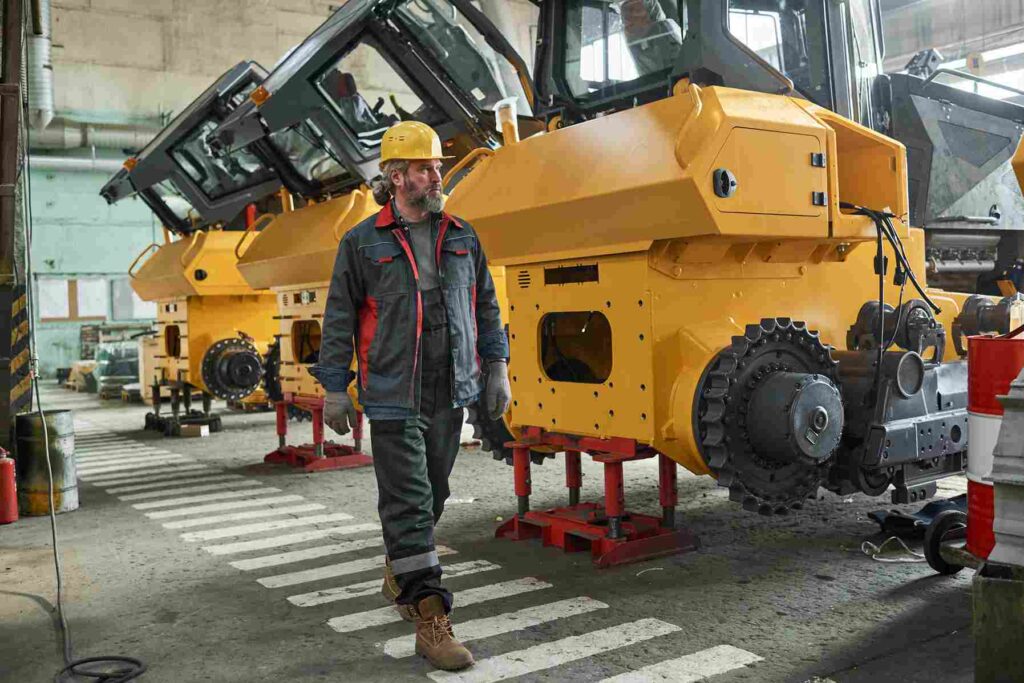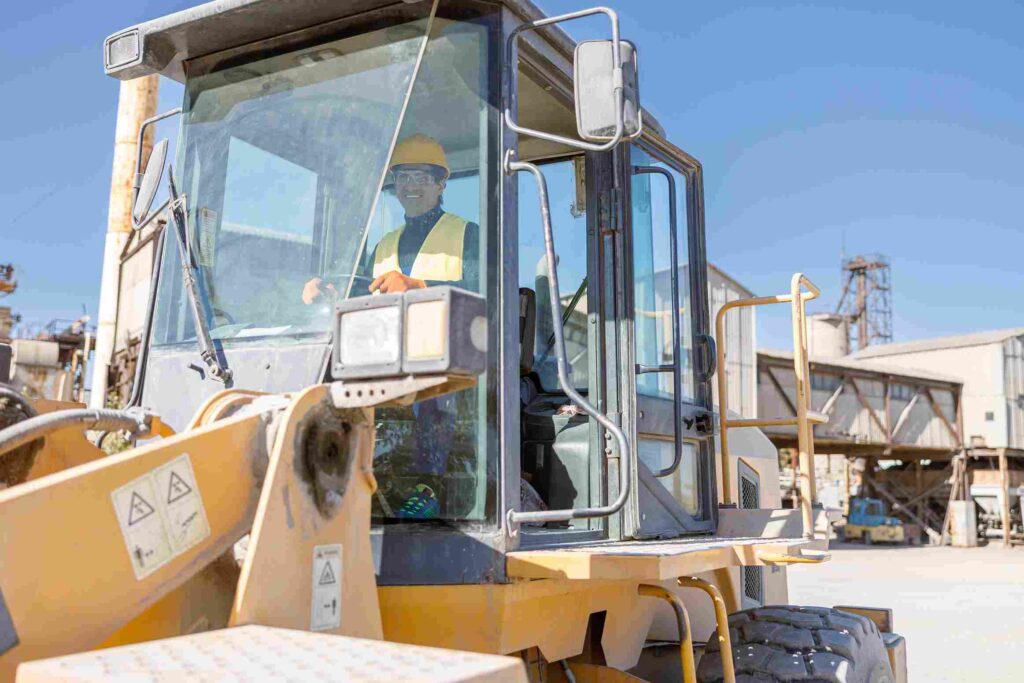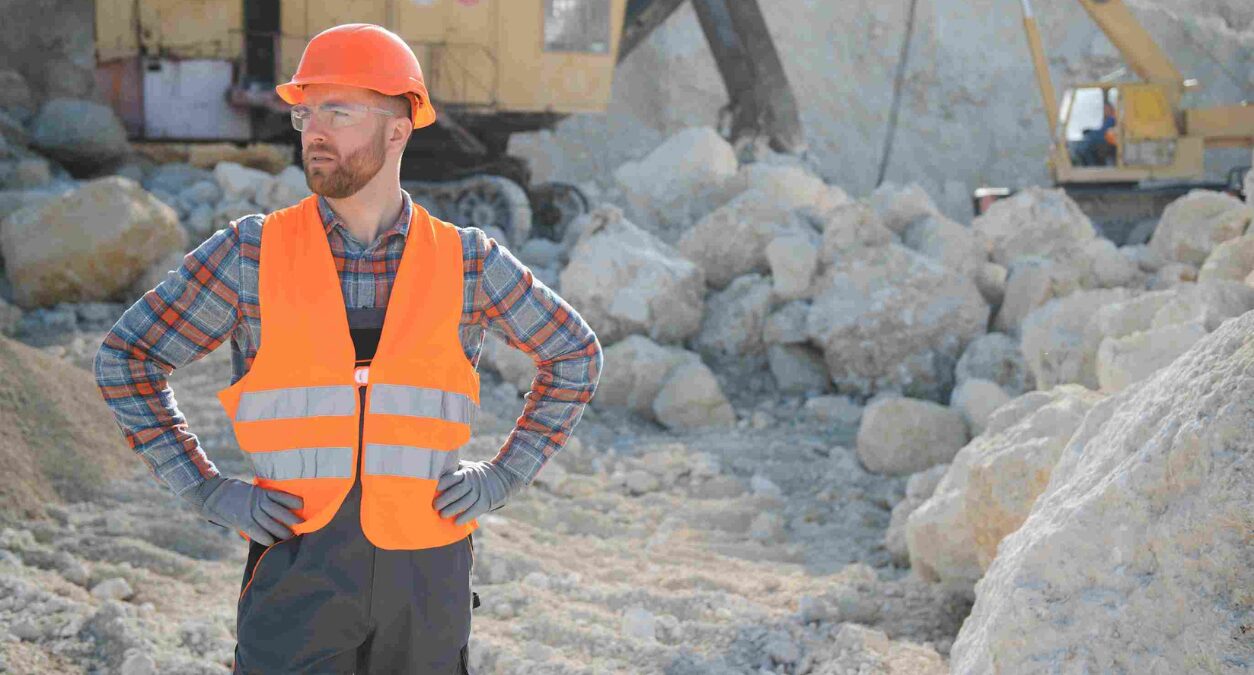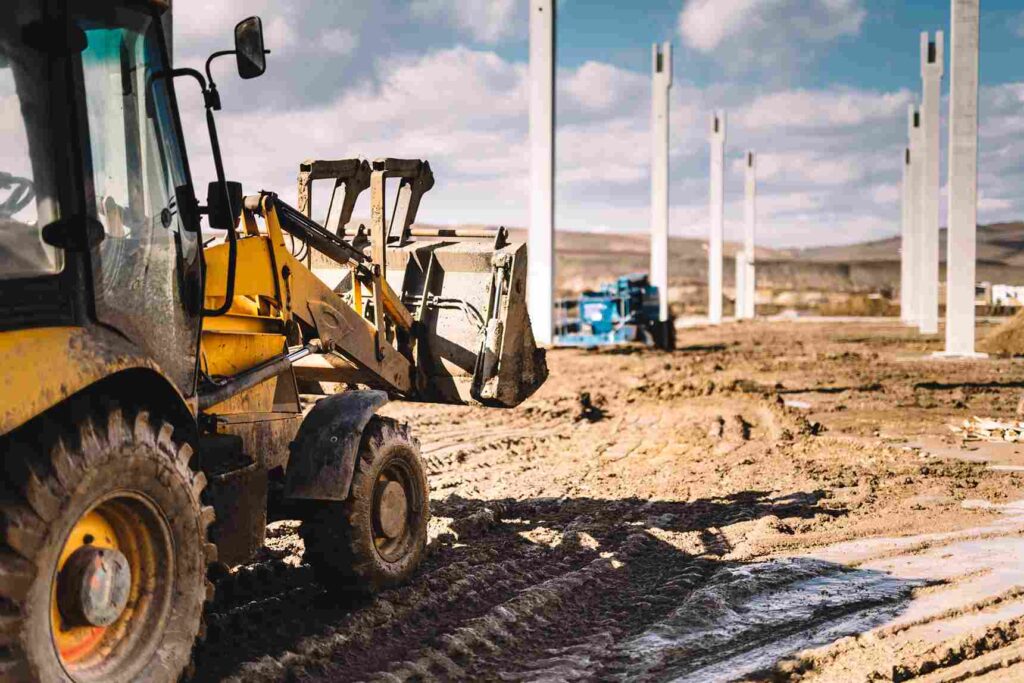Table of contents
Table of contents
If you’re starting out in the construction industry and looking to operate heavy machinery, you might have heard about the CPCS card. But what exactly is it, and why do you need one?
The Construction Plant Competence Scheme (CPCS) is a widely recognised certification scheme in the UK that proves you have the skills and knowledge to safely operate plant machinery. Whether you’re handling excavators, dumpers, cranes, or forklifts, having a CPCS card can boost your employability and ensure you’re working legally.
Find out more as we walk you through everything you need to know about CPCS cards, from the different types available to how you can get one.
What is the CPCS Scheme?
The Construction Plant Competence Scheme (CPCS) was introduced in 2003 to set industry standards for plant operators. It ensures that workers have the right training, experience, and safety knowledge to operate machinery on construction sites.
Many employers and contractors require their workers to hold a CPCS card as proof of their competence. It helps to reduce workplace accidents and ensures construction projects are carried out efficiently and safely. If you want to work as a plant operator in the UK, getting a CPCS card is often a must-have.
Who Needs a CPCS Card?
Not sure if you need a CPCS card? Here’s a quick guide to who should consider getting one:
- Plant Operators – If you’ll be using equipment like diggers, rollers, telehandlers, cranes, or dumpers, you’ll need a CPCS card to prove you’re qualified.
- Construction Workers Handling Machinery – Even if you’re not a full-time plant operator, if your job involves using construction plant, a CPCS card might be required.
- Contractors & Subcontractors – Many major construction sites require all workers to have the right certification, including CPCS.
- Self-Employed Tradespeople – If you’re working for yourself, having a CPCS card can make you more attractive to potential clients and employers.
- Supervisors & Managers – Those overseeing plant operations may need a CPCS Black Card to prove they have management-level competence.
Holding a CPCS card isn’t always legally required, but in most cases, employers won’t hire you without one.
Different Types of CPCS Cards
There are several CPCS cards, each suited to different levels of experience:
Red Trained Operator Card (Entry Level)
This is the starting point for those new to plant operation or those undergoing formal training. If you’ve completed the required training but still need on-the-job experience, this is the card you’ll receive.
What does it prove?
- You have completed CPCS-recognised training for your chosen category of plant machinery.
- You have passed the CPCS Technical (Theory & Practical) Test for your specific plant type.
- You understand the health and safety regulations relevant to your role.
How long is it valid for?
- 2 years (non-renewable).
- You must progress to the Blue Competent Operator Card by completing a relevant NVQ/SVQ and proving your experience.
Common roles requiring a Red Trained Operator Card:
- Excavator Operator
- Telehandler Driver
- Dumper Truck Operator
- Crane Operator
Blue Competent Operator Card
The Blue CPCS Card is for experienced plant operators who have developed their skills on-site and completed an NVQ/SVQ qualification.
What does it prove?
- You have extensive hands-on experience in plant operation.
- You have successfully completed an NVQ/SVQ Level 2 (or higher) in your field.
- You meet the industry-standard health and safety requirements.
How long is it valid for?
- 5 years (renewable).
- Renewal requires passing the CPCS Renewal Test, proving ongoing competence, and maintaining a valid Health, Safety & Environment (HS&E) Test.
Common roles requiring a Blue Competent Operator Card:
- Skilled plant operators working independently
- Workers looking to become specialists in their machinery type
- Experienced construction workers wanting higher pay and job stability
Black Manager Card
This is for experienced site supervisors, managers, and decision-makers who oversee plant operations rather than operate the machinery themselves.
What does it prove?
- You have a higher level of competence in managing plant operations.
- You have successfully completed an NVQ Level 4 or 5 in Site Management or Plant Supervision.
- You understand regulatory compliance, risk assessments, and project planning.
How long is it valid for?
- 5 years (renewable).
Common roles requiring a Black Manager Card:
- Site Managers
- Plant Supervisors
- Construction Project Managers
Tester Card
This card is designed for professionals who want to assess and certify others in plant operation.
What does it prove?
- You are qualified to test and certify CPCS candidates.
- You have a high level of expertise in plant operation.
- You have completed the CPCS Tester Course and hold a valid Assessor Qualification.
How long is it valid for?
- 5 years (renewable).
Common roles requiring a Tester Card:
- CPCS Testers working in accredited test centres
- Industry professionals transitioning into training and assessment roles
How to Get a CPCS Card

Step 1: Check Your Eligibility
To apply for a CPCS card, you must be at least 16 years old and have completed relevant training.
Step 2: Pass the Health, Safety & Environment (HS&E) Test
Before applying, you must take the CITB Health, Safety & Environment (HS&E) test. This ensures you understand basic site safety and can work in a safe manner.
Step 3: Complete the CPCS Theory & Practical Tests
You’ll need to pass both:
- The Theory Test – Covers machine operation knowledge and safety procedures.
- The Practical Test – Assesses your ability to safely operate machinery.
Step 4: Apply for Your CPCS Card
Once you’ve passed, you can apply for your Red Trained Operator Card, which is valid for two years.
CPCS Card Renewal and Upgrades

Renewing Your CPCS Card
CPCS cards have an expiry date (usually five years for Blue Competent Operator Cards). To renew, you’ll need to:
- Pass a CPCS Renewal Test
- Show evidence of ongoing plant operation
- Ensure your HS&E test is still valid
Upgrading to a Blue Competent Operator Card
To move from a Red Trained Operator Card to a Blue Competent Operator Card, you must:
- Gain on-site experience
- Complete an NVQ or SVQ in your chosen category
- Pass the CPCS Competence Interview
This upgrade proves you’re a fully competent plant operator.
CPCS vs Other Competence Cards
CPCS vs CSCS (Construction Skills Certification Scheme)
While a CSCS card proves general construction knowledge, a CPCS card is specifically for plant operators. If you’re operating machinery, a CPCS card is required.
CPCS vs NPORS (National Plant Operators Registration Scheme)
NPORS is an alternative to CPCS, but CPCS is more widely recognised on larger construction sites.
Some employers accept NPORS, but many prefer CPCS.
If you’re unsure which card to get, check what your employer requires before applying.
Costs and Funding Options
The cost of getting a CPCS card can vary depending on:
- Training courses – £500–£2,000 depending on the plant category
- HS&E Test – Around £22.50
- CPCS Theory & Practical Tests – Prices can vary by test centre
If you’re employed, your employer may cover the costs. There are also government grants and funding schemes available, especially for apprentices.
Common mistakes and CPCS cards

Not preparing for the HS&E test – It’s a requirement for getting your card!
Applying for the wrong CPCS card – Check which one suits your role.
Letting your card expire – Set a reminder for renewal deadlines.
Choose the right CPCS card
Applying for and maintaining a CPCS card is essential for plant operators and construction workers, but it’s easy to make mistakes along the way.
- Not Preparing for the HS&E Test
The Health, Safety & Environment (HS&E) Test is a mandatory requirement for obtaining any CPCS card. Some applicants assume it’s an easy test and don’t prepare properly, leading to failure. - Applying for the Wrong CPCS Card
Many people apply for a CPCS card that doesn’t match their skills or job role. For example, a beginner may attempt to apply for the Blue Competent Operator Card without meeting the experience requirements. - Letting Your CPCS Card Expire
CPCS cards have an expiry date, and if you don’t renew on time, you may have to retake tests or even repeat training.
CPCS Card Type | Best For | Key Requirements | Validity |
| Red Trained Operator Card | New plant operators | CPCS Training + CPCS Test | 2 years (non-renewable) |
| Blue Competent Operator Card | Experienced plant operators | NVQ Level 2 + CPCS Test | 5 years (renewable) |
| Black Manager Card | Site managers & supervisors | NVQ Level 4/5 + Management Experience | 5 years (renewable) |
| Tester Card | CPCS Testers & Trainers | Assessor Qualification + CPCS Experience | 5 years (renewable) |
FAQs About CPCS Cards
How long does it take to get a CPCS card?
It depends on your training and experience, but most people can get their Red Trained Operator Card within a few weeks.
Can I work without a CPCS card?
Some smaller sites may not require it, but for most construction projects, it’s essential.
What happens if I fail the CPCS test?
You can retake it, but it’s best to prepare well to avoid extra costs.
Your CPCS card is your key to better job opportunities and career progression in the construction industry. Whether you’re just starting out with a Red Trained Operator Card or aiming to become a CPCS Tester, knowing the right path can help you plan ahead and build a strong career in plant operation.
Make sure you check employer requirements, stay up to date with training, and renew your card on time to keep your skills and certifications valid.
Get Tradesman Insurance from Protectivity
*Disclaimer – This blog has been created as general information and should not be taken as advice. Make sure you have the correct level of insurance for your requirements and always review policy documentation. Information is factually accurate at the time of publishing but may have become out of date.
Last updated by


















